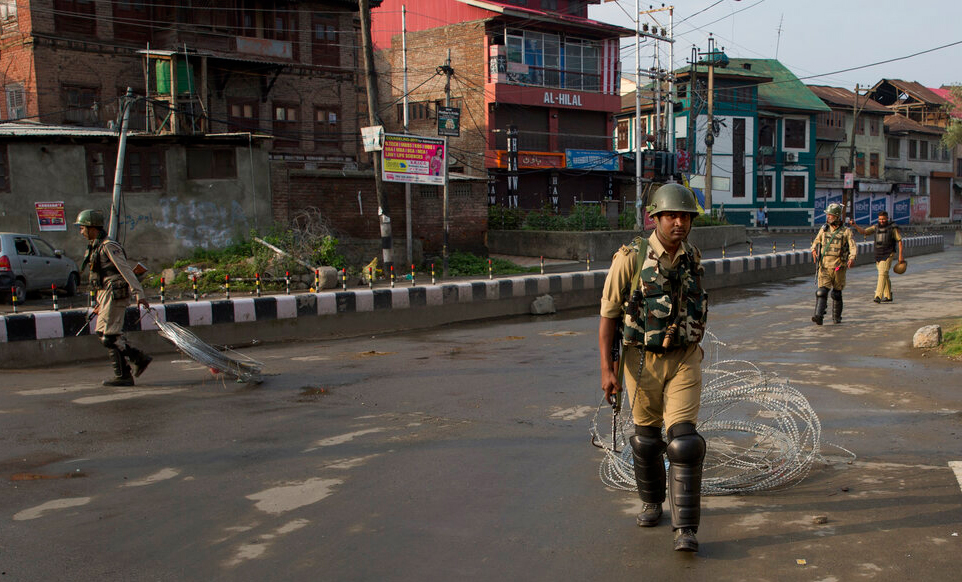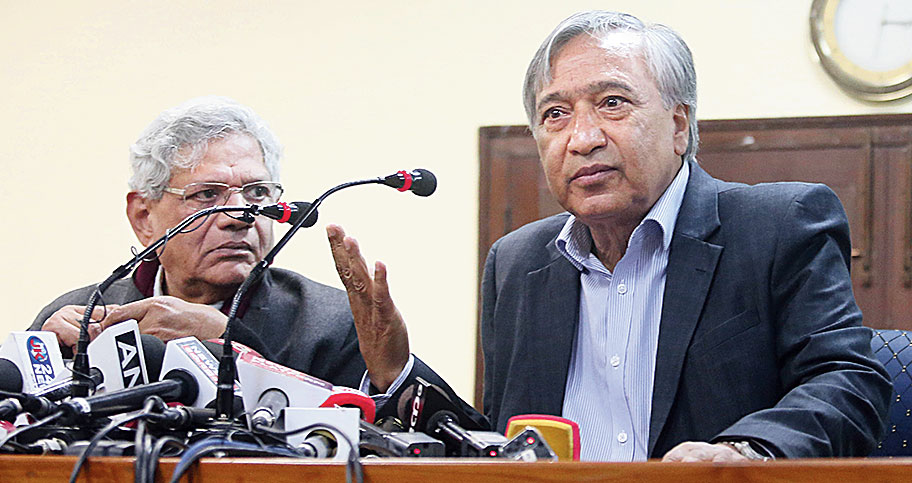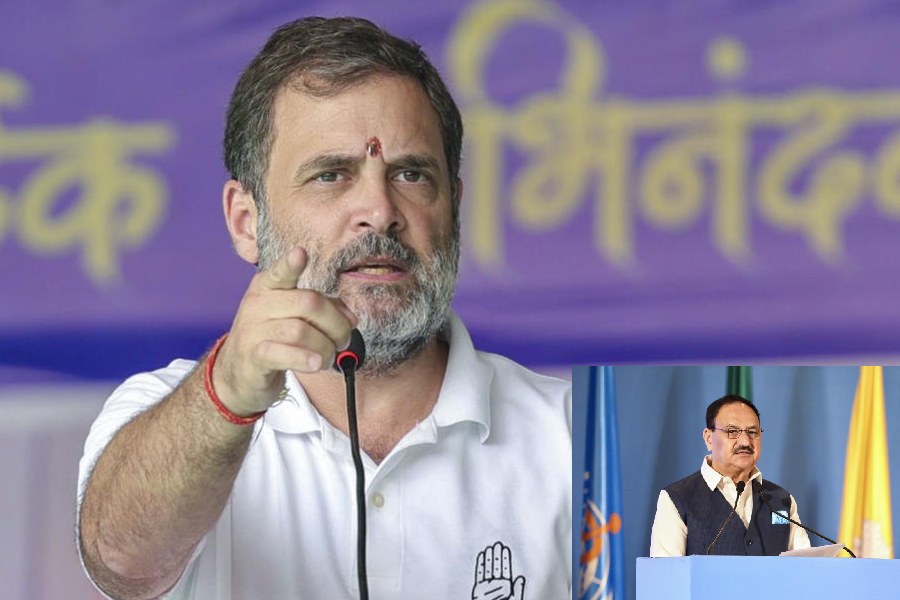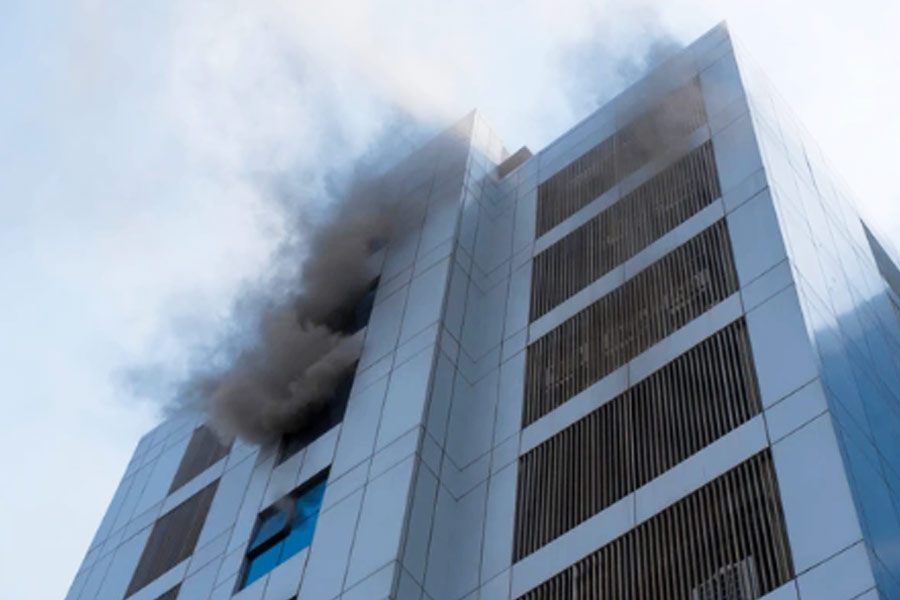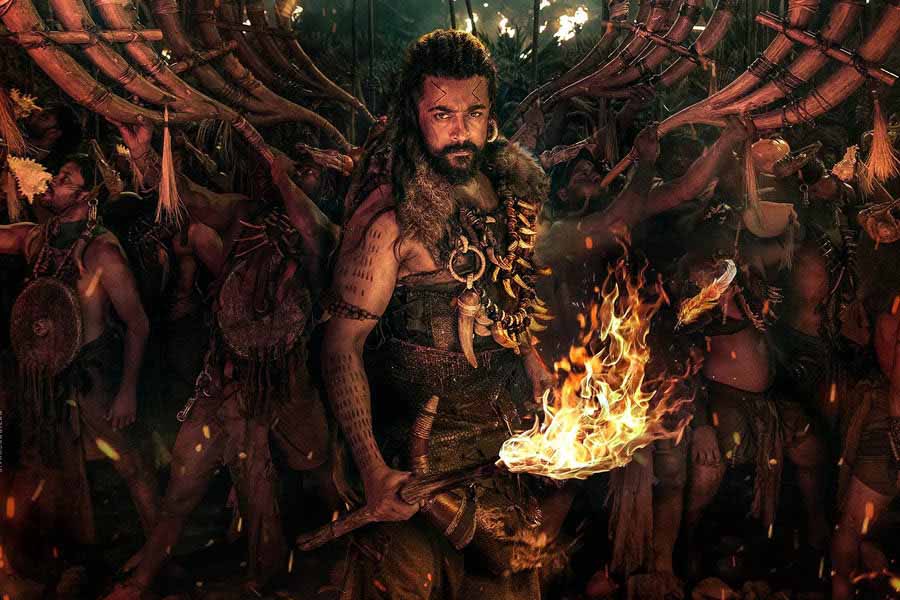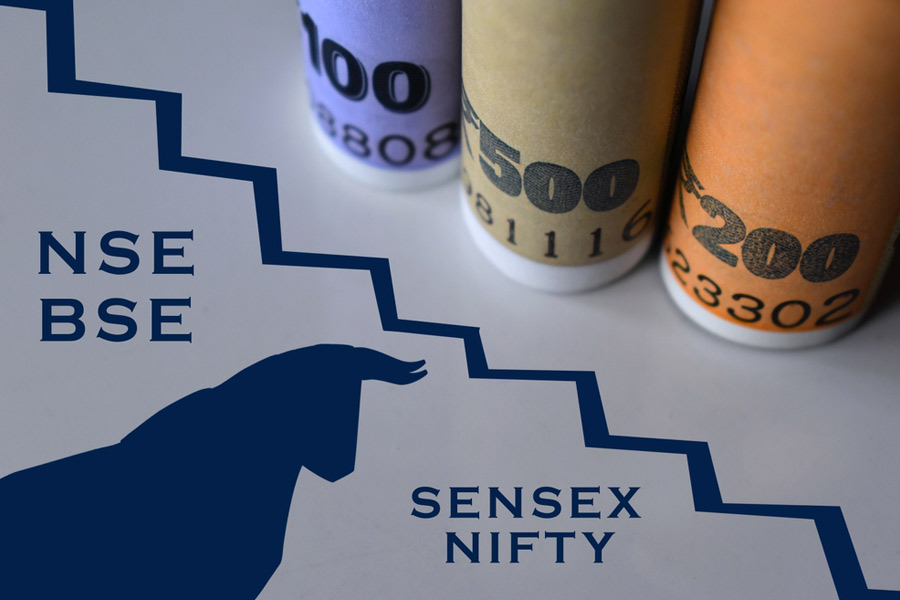Among the most knowledgeable scholars of Indian history and politics is the Delhi-based lawyer, Anil Nauriya. I have been deeply educated by his essays, these researched and written in between his work at the Bar. I have read his articles with appreciation when they were first printed, and often had occasion to return to them years after they were published.
Anil Nauriya has written with insight and authority on the freedom struggle, about figures such as Gandhi, Bhagat Singh and Savarkar. However, the work of his that may be most relevant to the current conjuncture are two essays he published some years ago on politics in the state of Jammu and Kashmir. The first, published in the Delhi weekly, Mainstream, in August 2002, documented the targeted killings by terrorists of workers and leaders of the National Conference. After the jihadist insurgency began in 1989, those advocating azadi for Kashmir or merger with Pakistan began systematically attacking those Kashmiris who rejected both these options, and who instead urged an accommodation with New Delhi within the framework of the Indian Constitution.
In the decade of the 1990s, when militancy was its peak, Kashmiris who wished to remain within the Indian Union were treated as enemies by terrorists funded and supported from across the border. Particularly vulnerable were leaders of the National Conference, a stoutly secular party which, from the days of its founder, Sheikh Abdullah, had been absolutely opposed to the theocratic state of Pakistan. In his Mainstream article, Nauriya listed dozens of individual examples of National Conference workers being eliminated by terrorists in Kashmir between 1990 and 2002. Those killed included many block presidents and several members of the legislative assembly. There were also several attempts to murder the pre-eminent National Conference leader, Farooq Abdullah.
These killings of National Conference leaders and workers had been ignored by the international media, and, more depressingly, by the Indian media as well. Nauriya’s article was an honourable exception. Based on painstaking research, he documented more than 50 such killings, giving, in each case, the name of the individual, and the date and location of the murder. Of these murders he himself had verifiable evidence; but of course the list was merely indicative, not exhaustive. There would have, as he pointed out, been many other National Conference cadres killed by terrorists over the years.
The chilling political logic of these attacks was explained by Anil Nauriya as follows: “For all the mistakes that India may have made in Kashmir in the last 50 years, there is a significant point of view within Kashmiri Muslim opinion which, while accepting the legitimacy of and justification for, dissatisfaction with the Indian government, is willing to come to a peaceful settlement through dialogue within the framework of the Indian Constitution. The terrorists are keen to ensure that this does not happen and that those who express this point of view be physically eliminated, and those who support them sufficiently intimidated.”
Nauriya further observed: “The National Conference is one of the oldest political parties in India. This political formation in Jammu & Kashmir today faces the prospect of physical destruction, not necessarily at the hustings, but in the form of the elimination of its cadres who have been subjected to political assassination on a scale whose enormity the average Indian is hardly aware of. In a real sense Indian national opinion has failed this great party. Few political scientists in the country have bothered about its fate. Few historians have cared to document its history. And when its cadres started being killed by terrorists, it would either not be reported or be relegated to the small print or wrapped up in such rigmarole that the massive scale of destruction of this party was seldom brought home to the reader in the country as a whole.”
In 2005, Anil Nauriya wrote an article in The Tribune, this time on the targeted killings of workers and leaders of the Peoples Democratic Party. Three years previously, the PDP had come to power in Jammu and Kashmir, running the state government in coalition with the Congress. The PDP’s compact with the Indian Constitution now attracted the hostility of terrorists. Nauriya listed more than 25 prominent PDP workers who had been killed since 2002. Notably, National Conference workers continued to be targeted, and their killings at the hands of terrorists continued even when their party was out of power.
In this article of 2005, Nauriya argued: “Ironically, with the rise of the Hindutva movement since 1989, large sections of the minorities in the rest of India, especially in Modi-ruled Gujarat, were being labelled as anti-national. On the other hand, the traditional Kashmiri Muslim leadership was being eliminated by terrorists in J& K for the opposite reason: it was considered too pro-India.” (Both articles are available at 'https://dilipsimeon.blogspot.com/2016/08/anil-nauriya-targeting-kashmirs-leaders.html)
It is instructive to revisit Anil Nauriya’s articles now, at a time the Narendra Modi-Amit Shah regime has put the top leaders of the National Conference and the Peoples Democratic Party in jail for an indefinite period. When, on August 5 last year, Article 370 was abrogated, the government in New Delhi threw those who had stood for India and Indian interests in the Valley to the wolves. This was tragic, because, for all their flaws — dynasticism and corruption among them — the National Conference and the PDP represented that section of Kashmiri Muslim opinion that wished for an honourable compact within the framework of the Constitution of India.
This, so to say, ‘pro-India’ section of Kashmiri public opinion was never a majority; but it was never insignificant either. The decade of the 1990s had been particularly bloody in the Valley, but after the elections of 2002 violence had come down and tourism had gone up. There was a window of opportunity: which is what prompted the prime minister at the time, Atal Bihari Vajpayee, to hold out a hand of friendship to the Kashmiris. His successor as prime minister, Manmohan Singh, also recognized that to make the idea of India more appealing to the ordinary Kashmiri, the government had to strengthen our constitutional pluralism and to showcase our economic rise. If Kashmiris could be treated with dignity and respect, if their culture and faith could be protected and respected, and if young Kashmiris in particular could hope for professional advancement in the national economy, then perhaps affiliation with India would come to be seen as more attractive than either affiliation with Pakistan or the idea of an independent Kashmir.
The Modi government’s actions on and after August 5, 2019 have destroyed these hopes entirely — or at least for many years to come. Why should Kashmiris believe that they can gain from the growth of the Indian economy, when they alone experience internet and communications shutdowns, when their fruit, tourism, and crafts industries have all been so adversely affected by the government of India’s recent policies and actions? Why should Kashmiris believe that their culture will be respected, when the ruling party and its senior ministers demonize Muslims day in and day out? And finally, why should Kashmiris place any political faith in the Union government, when it has incarcerated three former chief ministers of Jammu and Kashmir, none of whom preached or practised violence, and all of whom swore by the Indian Constitution?
Back in the 1990s, it was terrorists supported and funded by Pakistan who targeted the Kashmiri mainstream. Now it is the government of India itself. When Islamic terror was at its height in the Valley, it was not workers of the Rashtriya Swayamsevak Sangh who gave up their lives to protect the composite and secular fabric of India. It was (as Anil Nauriya documented) workers of the National Conference and the Peoples Democratic Party who did so. Now our government has jailed the leaders of the National Conference and the PDP, on the shadiest and flimsiest of charges. We have betrayed those who stood by us in Kashmir.

